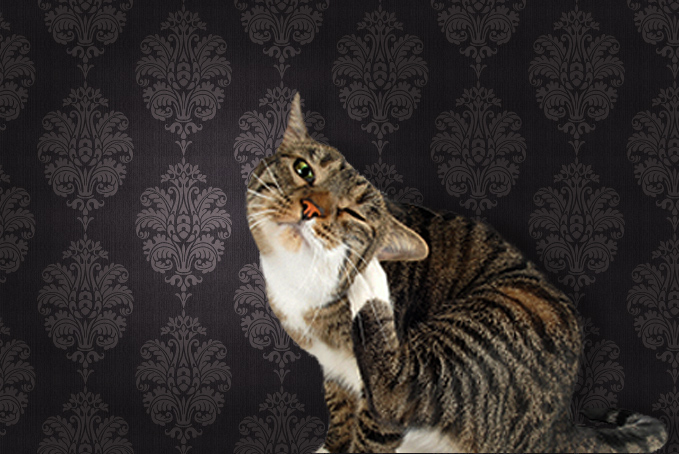Just as your good health depends on your family physician, your pet also benefits from a long-term relationship with your veterinarian. Since your family veterinarian is familiar with your pet, this highly trained professional, through examination, will be able to identify potential problems before they impair the health of your cat.
Each year when you and your pet visit your veterinarian, you receive far more than just the safe and painless administration of health protecting vaccines. Your family veterinarian will do a physical examination, noting vital statistics on your pet’s medical records for reference during your next visit. Over a period of years, this record will make your veterinarian aware of any changes that might adversely affect your cat’s long-term health.
Your pet depends on both you and your family veterinarian for lifelong health care.
Annual Physical Exam: The importance of routine physical examinations cannot be overlooked. This procedure, performed by the veterinarian, is valuable both to your pet and to you. Problems can be recognized during an exam, even in apparently healthy animals. The findings of the examination give your family veterinarian the necessary information to recommend preventive health care procedures such as vaccinations. Early detection of disease or behavioural problems ensures prompt action, which may resolve the problem before serious consequences occur, and may also prevent suffering.
The History: Your veterinarian will ask you questions about the health history of your pet. Be sure to discuss any unusual behaviour with your veterinarian. Medical records will be consulted if the cat has been a regular patient. Notes will be made regarding your pet’s diet, water consumption, and a variety of daily behaviour patterns that relate to its health. Temperature, pulse, and respiration rate may be noted and then your veterinarian will begin the physical examination from nose to tail.
A Wet Nose Does not Mean Good Health: The nose is not the health barometer that some people think it is, but it’s a good place to start. Your veterinarian will check your cat’s nose for abnormal discharge, and changes in colour texture, moisture, or shape.
Pet’s Ears Invite Infection: Questions you will be asked – Has your cat has been shaking its head or scratching at its ears? Have you noticed any odour from the ears? Your cat’s deep, curved ear canals provide protection for the inner ear, but these canals also provide a snug home for parasite infection, and foreign objects. A visual check will be made.
Eyes are the Windows to your Cat’s State of Health: Many conditions, such as anaemia, infections, and jaundice, often are discovered through eye examinations. In addition, eye problems such as ulcers, lacerations, glaucoma, or local inflammation may be detected. Your veterinarian will also observe the inner structures of the eye.
An Oral Exam Will be Given: An oral exam is extremely important. Your veterinarian will check your cat’s gums, teeth, tongue, and palate for abnormalities, tumors, and infections. A lack of red or pink color in the lining of the gums and lips, for example, may indicate anemia.
Listening to the Heart and Lungs: Your veterinarian will use a stethoscope to listen to your cat’s heart and lungs. If any irregularities are noted, additional tests may be necessary. Early heart disease is often recognized during a routine health exam.
Health is Sometimes Skin Deep: The skin is the body’s largest organ and a good indicator of your pet’s health. Your veterinarian will examine the condition of the skin and hair as a means of detecting other health problems.
Sense of Touch: Hands and fingers will be used to feel the abdomen. This sense of touch will help to assess the condition of internal organs and to detect organ abnormalities, tumours or other irregularities. The legs and feet of your pet will be checked. The condition of joints, muscles, skin, and lymph nodes will also be noted.
It’s Wise to Immunize: Immunizing your pet against diseases is one of the best tools of preventive medicine. Cats can be immunized against Feline Panleukopenia (Distemper), Upper Respiratory Diseases (Feline Rhinotracheitis, Calicivirus, and Chlamydia), Feline Leukemia, Feline Infectious Peritonitis and Rabies. Health threats vary from city to city. Your veterinarian can tailor an immunization program for your pet based on your local conditions and keep your cat protected with the latest vaccines.
An annual physical Examination is the best health insurance. And remember the old saying, “An ounce of prevention is worth a pound of cure”. That happens to be as true for the health of your pet as it is for any member of your family!
If you have any questions concerning your cat’s health, call our veterinarian who is your pet’s best friend and your best source of information about your pet.




